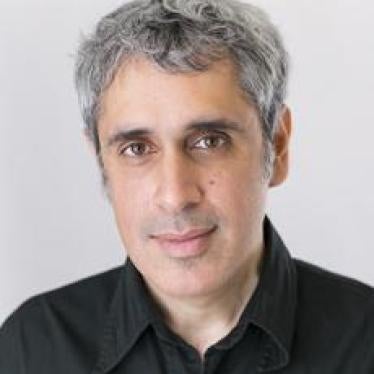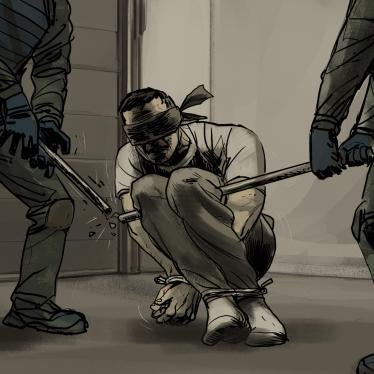Prosper Niyonzima, a survivor of the Rwandan genocide, spent nearly five years in immigration detention in Canada, including two years in solitary confinement. After a mental health crisis that left him catatonic, he found himself trapped in a Kafkaesque system that was ill-equipped to meet his needs.
Following his mental health crisis, the tribunal conducting his detention review hearings determined that he was “unable to appreciate the nature of the proceedings,” and appointed a designated representative—a person legally empowered to make decisions on his behalf—to communicate with detention authorities for him, to hire and instruct his lawyer, and to provide evidence and testify for him at hearings. This was a person he never met and could not fire, even if he could communicate. His monthly detention review hearings proceeded for years with his designated representative standing in for him.
Niyonzima’s detention meant losing not only his freedom but also his legal capacity—the right to make basic decisions about his life. Years after his release, he recalled, “Detention destroyed everything. … I never thought this would happen in Canada.”
Our new Human Rights Watch report exposes routine legal capacity violations that people like Niyonzima endure in immigration detention. Each year, Canada detains thousands of people on immigration grounds, many of whom are fleeing persecution and traumatic experiences. This includes people with disabilities, who frequently face discrimination, prolonged detention, and solitary confinement, which exacerbate existing mental health conditions.
We found that while Canada’s immigration detention authorities claim to protect marginalized detainees, the system’s designated representative framework often silences them. The Immigration and Refugee Board has unchecked power to label immigration detainees—including those with intellectual, developmental, cognitive, or psychosocial disabilities—as “unable to appreciate the nature of the proceedings.”
Sometimes, these determinations are based on mere observations by detention authorities. The tribunal then appoints designated representatives, who are legally empowered to make decisions for detainees, with life-altering consequences. This substitute decision-making strips detainees of their autonomy and dignity, denying them the right to make crucial choices about their lives.
Designated representatives operating in a strictly supportive role can, in some cases, provide crucial help for immigration detainees. But the current framework legally empowers designated representatives to make key decisions unilaterally, without even consulting detainees, and to do so without proper oversight, training, or resources.
For many detainees, this means their lives are placed in the hands of representatives whose training, competence, and involvement vary drastically, but whose legal discretion is immense. Some designated representatives rarely communicate with their clients, and others have even acted in alignment with detention authorities.
The consequences are profound: according to an independent auditor, the presence of Niyonzima’s designated representative seemed to give the tribunal a false assurance that due process was being followed. Without the agency to influence their own cases, detainees with disabilities are effectively denied justice, forced to navigate a system that further disempowers and marginalizes them.
Canada’s immigration detention system urgently needs a paradigm shift. Human Rights Watch has repeatedly called for Canada to ultimately abolish immigration detention altogether, starting with the immediate end of detention in correctional facilities. Authorities should prioritize community-based alternatives, offering necessary support—including housing, health care, and legal support—without punitive restrictions for these administrative infractions.
In the meantime, the federal government should urgently redesign the role of designated representatives in line with international human rights standards by moving from substitute to supported decision-making. Under this model, designated representatives would assist detainees in making their own decisions, honoring their will and preferences rather than imposing decisions.
Niyonzima’s story is a stark reminder of the harm caused by these policies, but also the power of support in the community. Once he was released in 2016, he reconnected with community and regained his ability to speak. He got married, had children, and continues to live in Canada.
“When I was in detention, I didn’t know that change could come,” he told us. “But I can now say that the impossible is possible.”
Canada should confront deeply rooted societal attitudes that discriminate against people with disabilities. The government has a responsibility to re-root and nurture these systems in human rights. Getting on the path to ending immigration detention while adopting a supportive, rights-based approach is the right place to start.







